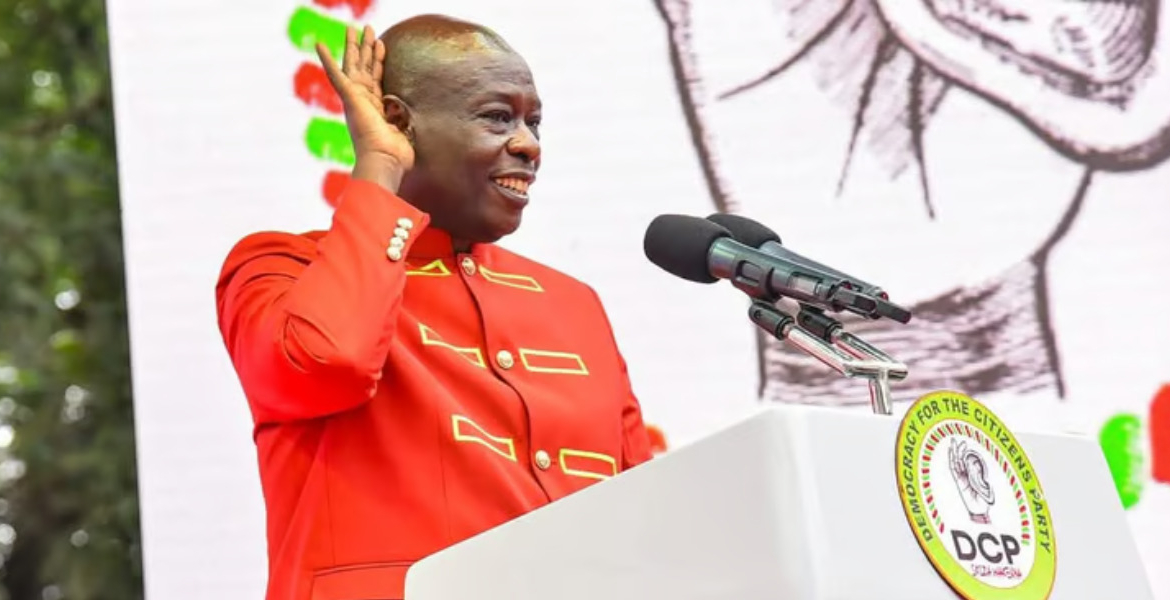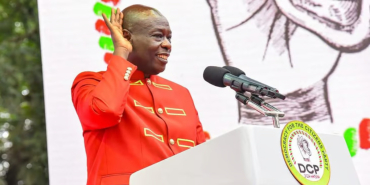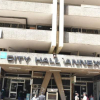Rise of New Parties Threatens Mt. Kenya’s Kingmaker Status

With the 2027 General Election looming, the once monolithic Mt. Kenya political bloc is experiencing unprecedented fragmentation, raising questions about its future influence on Kenya's national stage.
The rise of numerous political parties vying for regional dominance signals a significant realignment, potentially diluting the region's historical kingmaker role.
At the heart of this political shake-up is the Democracy for the Citizens Party (DCP), recently launched by Deputy President Rigathi Gachagua. This new outfit enters a crowded field that includes the still-influential Jubilee Party, associated with retired President Uhuru Kenyatta, as well as Martha Karua's People's Liberation Party (PLP), Mwangi Kiunjuri's The Service Party (TSP), Moses Kuria's Chama Cha Kazi (CCK), and Peter Munya's Party of National Unity (PNU).
Furthermore, a host of lesser-known parties are gaining traction, further complicating the political terrain. These include the Usawa Kwa Wote Party (associated with former Murang'a Governor Mwangi wa Iria), Tujibebe Wakenya (linked to ICT Cabinet Secretary William Kabogo), Ubuntu People's Forum (connected to Trade CS Lee Kinyanjui), and Safina Party (associated with Jimi Wanjigi). Adding to the crowded field are newer entrants such as The New Democrats, Kenya National Congress, Mwangaza Party, and the National Democratic Movement (NDM).
For decades, Mt. Kenya has consistently delivered sizable voting blocs to presidential contenders, effectively serving as a crucial power broker in Kenyan politics. However, analysts suggest that this fragmentation is driven by a confluence of factors: growing disillusionment with past political alliances, generational shifts in voter priorities, and a re-evaluation of ideological loyalties.
While President William Ruto's United Democratic Alliance (UDA) retains substantial support in the region, tensions have emerged, particularly in the relationship between Ruto and Gachagua.
Gachagua's push for DCP to become the region's primary political vehicle is seen as an attempt to reclaim Mt. Kenya's political agency, but it faces resistance from other parties unwilling to concede ground. Gachagua has voiced his perception of betrayal by the Ruto administration, indicating that the region may not support the President's re-election bid in 2027. These sentiments highlight concerns among leaders who feel marginalised despite their significant contribution to UDA's victory in the 2022 elections. Gachagua's recent remarks, comparing the region's position in Ruto's government to that of an abandoned ally, have further fueled the sense of discontent.
As Gachagua's DCP intensifies its efforts to consolidate regional support, other established parties – Jubilee, PLP, PNU, and TSP – are actively vying for influence. Each party is mobilising grassroots support across key counties, including Nyeri, Murang'a, Kiambu, Kirinyaga, Nyandarua, Meru, Embu, Tharaka Nithi, Nakuru, and Laikipia, preventing any single political entity from achieving unchallenged dominance. Despite recent setbacks, Jubilee, led by Secretary General Jeremiah Kioni, insists that the party remains a formidable force. Kioni believes that growing anti-Ruto sentiment will fuel a resurgence.
He has also indicated Jubilee's support for former Interior Cabinet Secretary Fred Matiang'i, further distancing the party from Gachagua's faction. Kioni dismisses the notion that Jubilee would align with Gachagua, stating that Matiang'i's presidential aspirations were independent of the Deputy President's plans. Mwangi Kiunjuri has criticised Gachagua's efforts as an attempt to stifle other political formations in Mt. Kenya. Kiunjuri argues that the presence of multiple parties benefits the region, as voters will ultimately choose leaders based on their ability to deliver results rather than party affiliation.
He maintains that elections in the region have historically been determined by candidates' competence and effectiveness. Martha Karua's People's Liberation Party has been recast as a resistance movement focused on combating state capture and constitutional violations. The seasoned politician, known for her unwavering stance against government overreach, aims to position the PLP as a counterweight to perceived excesses of the current administration.
Former Bahati MP Kimani Ngunjiri has also entered the fray, acquiring the Future Party of Kenya to establish himself as a regional player. Ngunjiri, once an ally of Gachagua, has become one of his most vocal critics, accusing him of divisive politics. Political analysts caution that continued fragmentation could diminish Mt. Kenya's ability to influence national leadership. The region's historical role in producing three of Kenya's presidents and its significant influence in past elections are at risk.
Unless these factions coalesce around a single candidate or forge strategic alliances, Mt. Kenya may face political marginalisation in the 2027 elections.
Martin Oloo, a political commentator, highlights the potential significance of the unexpected rapprochement between Ruto's UDA and Raila Odinga's ODM. He suggests that ODM's departure from Azimio has reshaped the electoral landscape, emphasising the need for broader coalitions that transcend existing political formations.
Oloo asserts that defeating Ruto and Raila in 2027 requires a unified opposition under a powerful political coalition, similar to the NARC alliance that challenged KANU in 2002. He emphasises that opposition leaders like Gachagua and Wiper leader Kalonzo Musyoka must prioritise unity over individual ambitions, and successful opposition coalitions necessitate strategic compromises.
Kiunjuri echoes these sentiments, warning that political miscalculations could lead to dire consequences. He cautions against being swayed by "formless" leaders lacking a clear vision.
Beyond ideological considerations, the proliferation of political parties has also taken on an economic dimension. Some leaders have registered parties not primarily to run for office, but to sell them to aspirants ahead of 2027. This practice of "party trading" has become prevalent, as politicians seek to avoid being excluded by dominant parties during nomination processes.








Add new comment